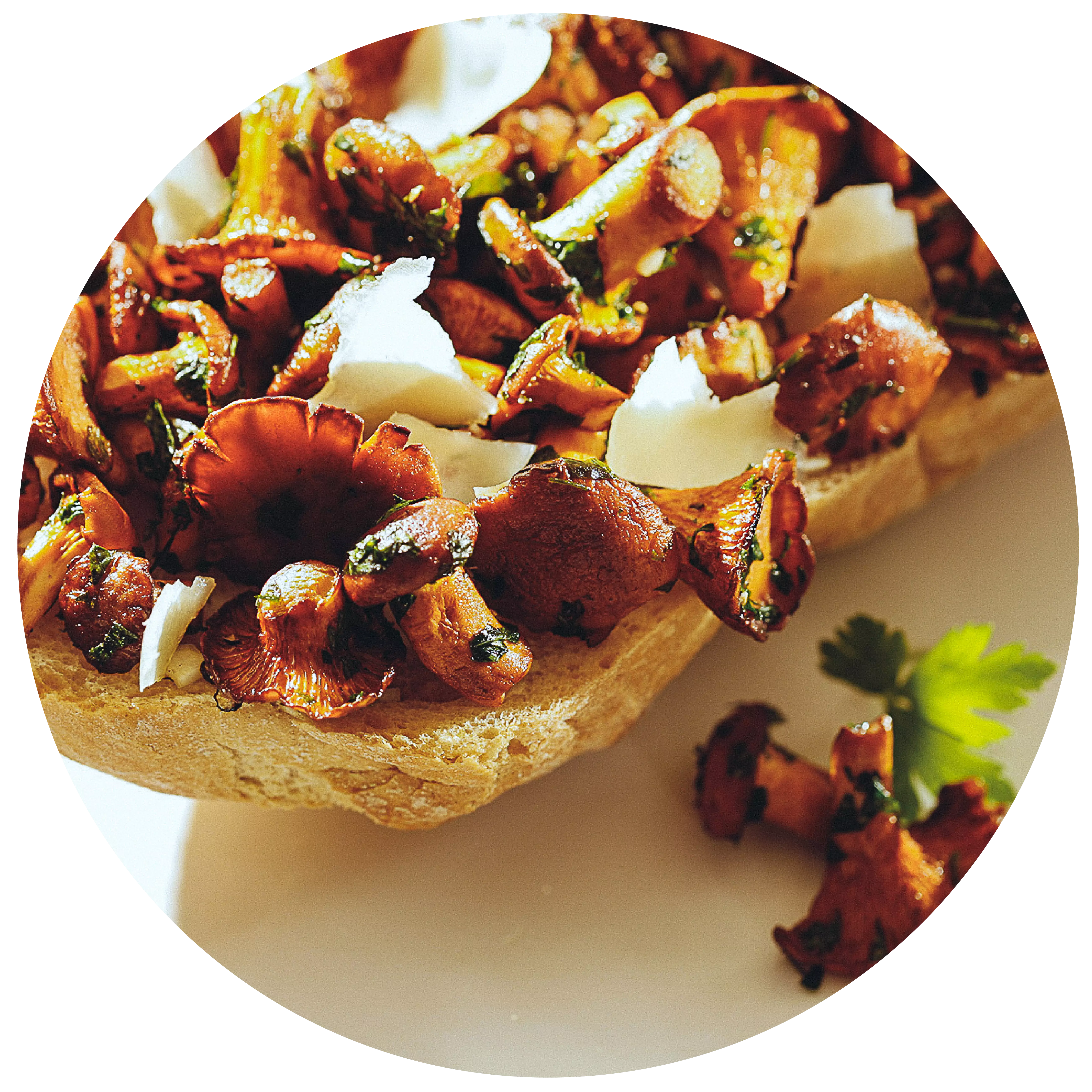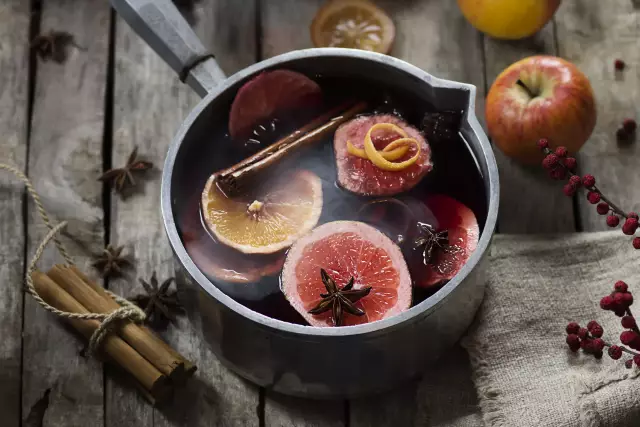Punch

Punch is a refreshing summer drink made of wine, sparkling wine and fruit or herbs. Colourful, fruity and well chilled, this fizzy classic guarantees fruity enjoyment.
Facts
-
3-5
ingredients
-
18.
century
-
50s
years
There’s really not much you can do wrong with this fruity cocktail – if you keep a few simple basic rules in mind:
- The best punches only use a couple of ingredients.
- A punch is only ever as good as the wine or sparkling wine used in its making. German quality wine, a light Kabinett and fruity Winzersekt are excellent choices.
- Only use fresh and fully ripe fruit.
- Peel and chop the fruit carefully – do not crush it.
- To get the fruit to develop its full aroma, just sugar it lightly or marinate it in grape liqueur. If you prefer a sweet punch, use sweet wines.
- Only add – well chilled – sparkling wine and mineral water just before you serve the punch. This way, you’ll keep it fizzing for that much longer.
- The ideal serving temperature for a punch is 5-8 °C, slightly cooler than for wine.
Do not add ice cubes to the punch. This will water it down. Best place the punch bowl inside a larger bowl filled with crushed ice.
And another thing: Once the punch is dwindling, do not top it up. It’s better to serve a good wine after the punch is finished.
Strawberry punch
Prepare a large plate full of fresh strawberries. Cut larger strawberries in half or quarter them. Sprinkle with sugar and let them sit for a while to release their juice. Alternatively, marinate the fruit in grape liqueur. Next, place fruit and juice in a punch bowl and let them steep in a little wine. Later, add 4-5 bottles of wine, such as well chilled rosé or Weißherbst. If possible, place the punch bowl on crushed ice. Just before serving, add a bottle of German Winzersekt and enjoy.
Peach punch
Peel 6-8 ripe peaches, cut them in half and remove the stones. Sprinkle the fruit pieces with sugar and let them steep. Next, add 3-4 bottles of wine, such as Riesling or Silvaner, and let the mixture steep for a couple of hours, preferably on ice. Just before serving, add a bottle of German Winzersekt for that zesty finishing touch.
Kumquat punch
Wash 15 kumquats in hot water, dry them and cut them into thin slices. Sprinkle with brown sugar and add a little wine, such as Pinot Gris or a mature Riesling. Let the mixture steep for a couple of hours, then top up with 2 bottles of wine and leave it to steep for some more time on ice. Just before serving, add a bottle of Winzersekt for that delightful sparkle.
How punch got its name
The German term for the refreshing summer cocktail made of wine and fruit is Bowle, derived from the English word “bowl”. Allegedly, the cocktail was invented by British colonial officers in India. To invigorate themselves and to overcome the sheer boredom of Colonial life, they got their Indian servants to create drinks for them that used at least five – or “punch” in Hindi – ingredients. Those were then served to the officers in a large “punchbowl”.
Thus the British started the fashion for punches in Europe in the 18th century. Initially reserved to nobility, drinking punch soon became a favourite pastime in bourgeois circles as well. The favourite drink of the 19th century high society later became the party craze of the 1950s. Today, the cocktail is becoming fashionable once again as an invigorating, fresh and fruity drink for the summer.
Do you know any other kind of punch than the traditional punch?
Besides the traditional punch like Cold Whisky Punch, Roman Punch, Ginger Punch,... for which spirits like brandy and whisky are used, you can also use grape wines to make a punch. How to make it? Find out in this article!
Varietals

with pear wedges Chicken breast strips
with pear wedges
- 500 Gramm Hähnchenbrustfilet
- 2 reife Birnen
- 200 ml Birnensaft
- 100 ml Sahne
- 1 ganze Zwiebel
- 4 EL Olivenöl
- nach Belieben Salz & Pfeffer
Cut the chicken breast fillet into strips. Peel the onion and cut into cubes. Heat the olive oil in a pan and fry the meat in it. Add the diced onion and season with salt and freshly ground pepper.
Wash and peel the pears, remove the skin, cut into wedges and sauté in the pan. Deglaze with the pear juice and allow to reduce slightly.
<p
<p>Finally, add the cream and season to taste.
- Müller-Thurgau (halbtrocken & feinherb)
- Kerner (halbtrocken & feinherb)
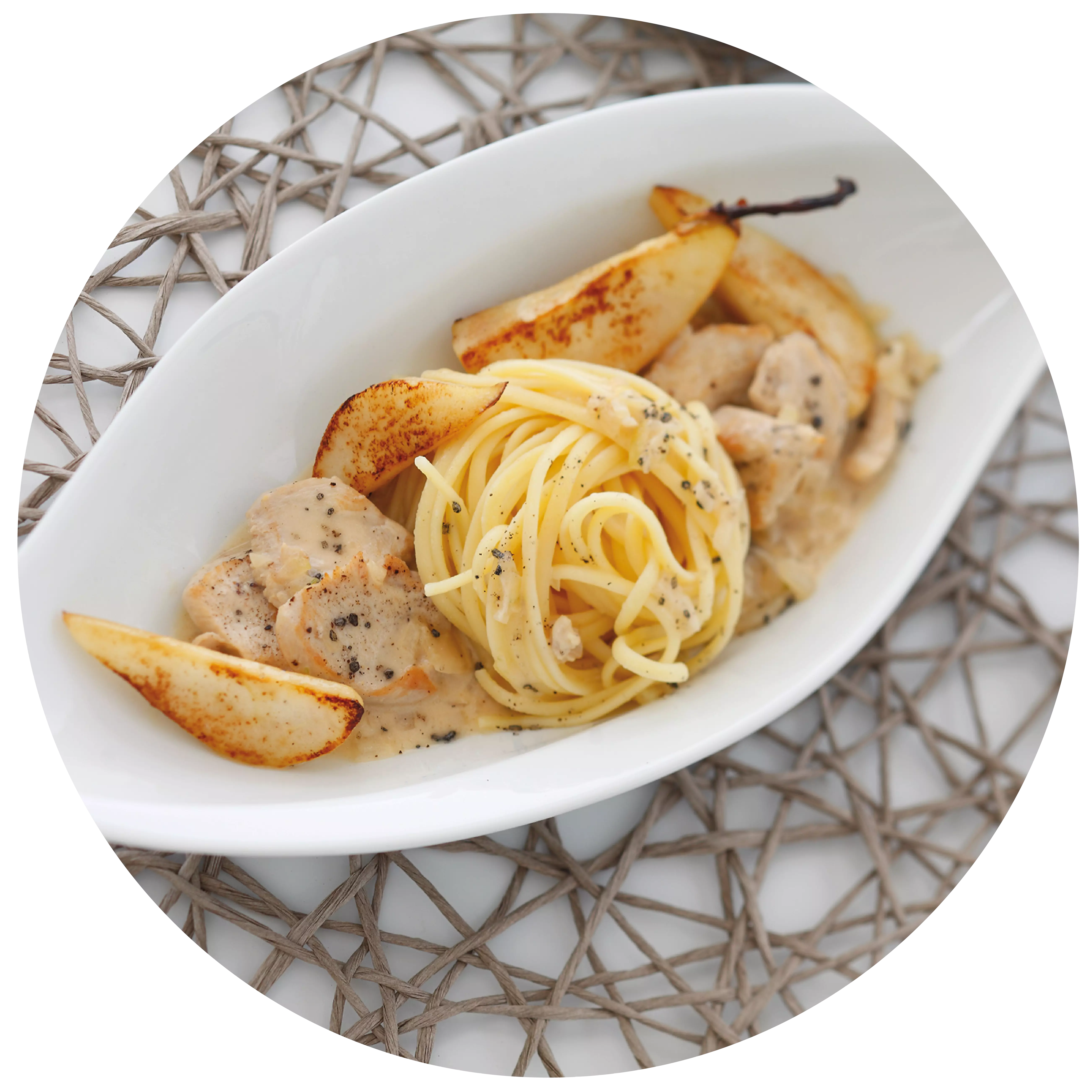
with bulgur Cabbage stew
with bulgur
- 200 Gramm Zwiebeln
- 1 ganze Knoblauchzehe
- 800 Gramm Spitzkohl
- 200 Gramm Möhren
- 400 Gramm festk. Kartoffeln
- 1 EL Kümmelsaat
- 1,5 Liter Gemüsefond
- 5 EL Olivenöl
- 2 EL Tomatenmark
- 2 EL edelsüßes Paprikapulver
- 3 TL Honig
- nach Belieben Salz & Pfeffer
- 120 Gramm grobe Bulgur
- 1 Bund Petersilie
- 4 Stiele Minze
- 1 ganze Zitrone
- 2 ganze Äpfel
- 3 EL Obstessig
Finely dice the onions and garlic. Clean, wash and quarter the cabbage, remove the stalk and roughly chop the cabbage quarters. Peel the carrots, halve lengthways and cut into approx. 2 cm wide pieces. Peel the potatoes and cut into approx. 2.5 cm pieces. Fry the carrots in a pan without fat and set aside.
Heat the vegetable stock in a small pan. Heat 3 tablespoons of oil in a large pan, sauté the cabbage in it for 10-15 minutes over a high heat until dark brown and remove from the pan.
Add the remaining oil to the pan. Fry the onions and garlic until translucent. Add the potatoes and muesli and sauté for 3-4 minutes, stirring constantly. Add the tomato purée and paprika powder and fry while stirring. Add the cabbage, honey and caraway and pour in the hot vegetable stock. Season with salt and pepper. Bring to the boil, cover and simmer for 45 minutes. Add the bulgur 20 minutes before the end of the cooking time.
Quarter the apples, remove the seeds, cut into approx. 1 cm cubes and add 10 minutes before the end of the cooking time. Pluck the herbs and chop medium-fine. Wash and dry the lemon, finely grate the zest and mix with the herbs. Flavour the stew with vinegar, salt and pepper and serve sprinkled with the herbs.
Tip: The pointed cabbage must be roasted really strongly and dark so that the aromas come out well.
- Spätburgunder / Pinot Noir (trocken)
- Trollinger (trocken)
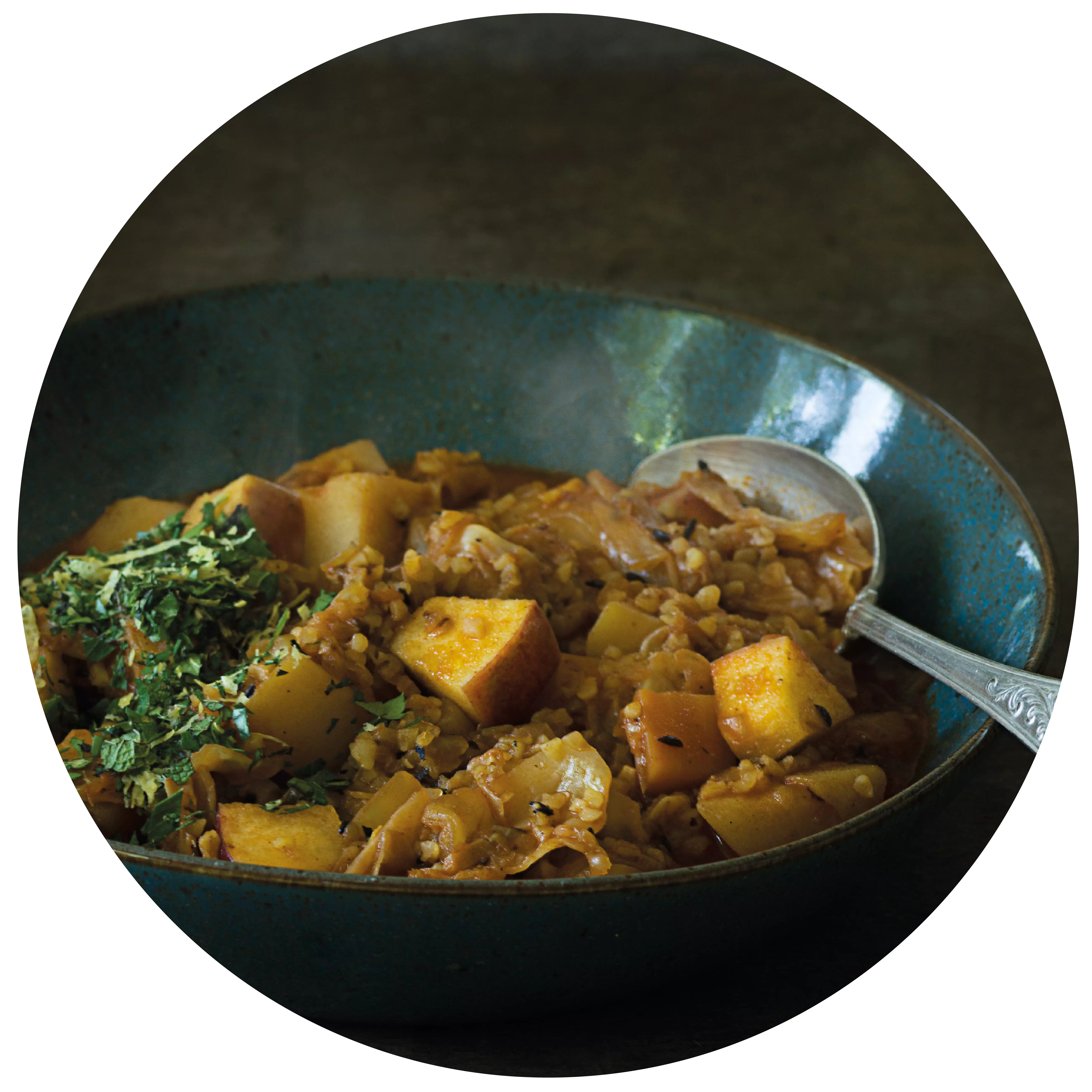
in a bacon coating Lamb
in a bacon coating
- 4 Stück Lammlachse à 150 g
- 4 Scheiben Bacon
- 0,1 Liter Wein
- 0,3 Liter Gemüsebrühe
- 1 kleine Schalotte
- 20 Gramm Butter
- 4 EL Olivenöl
- je 2 Zweige Thymian, Rosmarin, Salbei
- nach Geschmack Salz & Pfeffer
Season the lamb salmon with pepper and massage 2 tbsp of olive oil into the meat. Finely chop the thyme, rosemary and sage and season the meat in the herbs. Marinate in the fridge for a few hours.
<p
<p>Wrap the meat with the bacon slices and sear on all sides in the remaining olive oil. Continue to cook for approx. 4 minutes on each side over a low heat (the cooking time depends on the thickness of the lamb loin - it is best to do a pressure test). Then wrap in aluminium foil and leave to rest in the oven at 80 °C – so they remain juicy and slightly pink on the inside.
This goes well with Bärlauch risotto.
- Dornfelder (trocken)
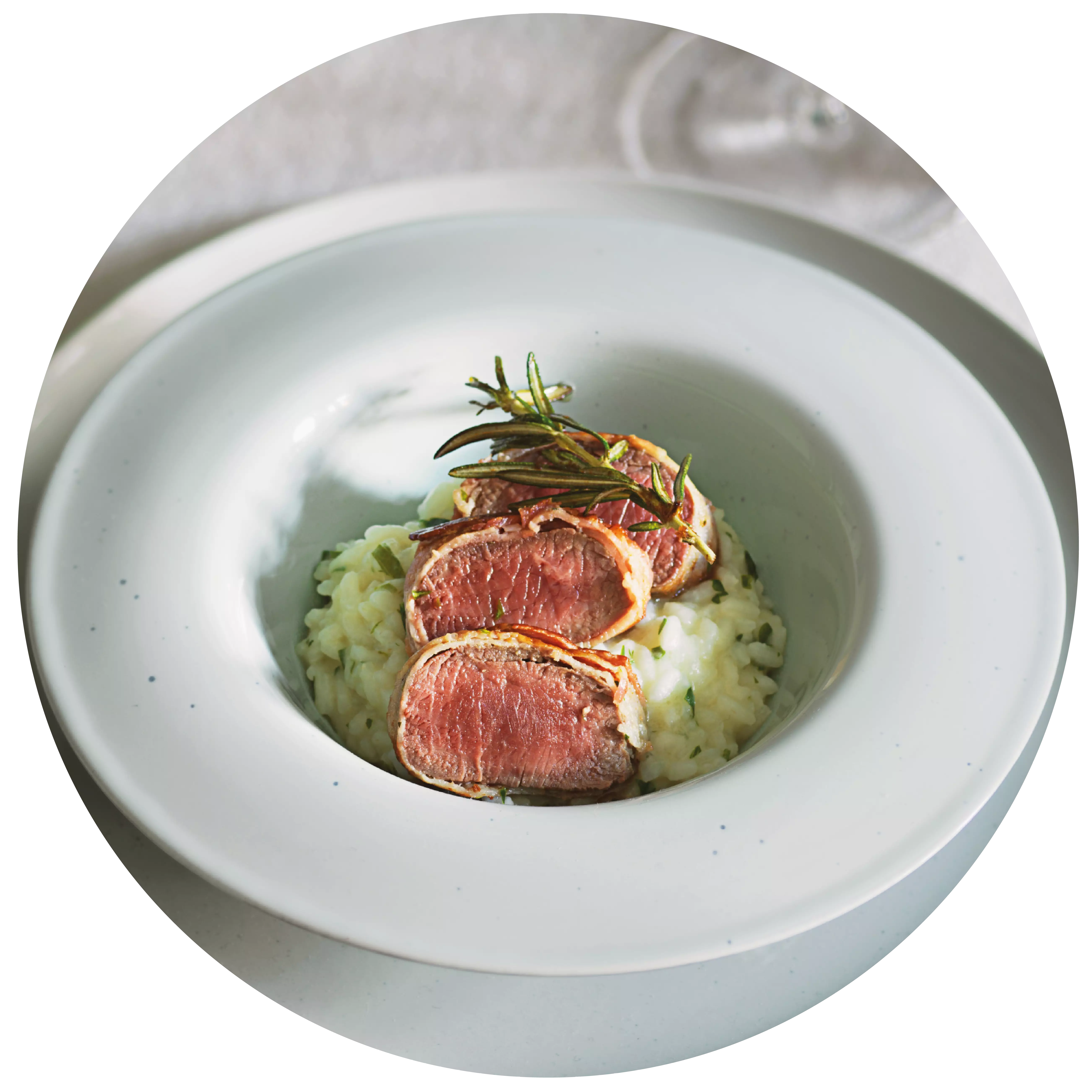
with fresh chanterelles Autumn bruschetta
with fresh chanterelles
- 4 Ciabatta-Brötchen
- 200 Gramm kleine Pfifferlinge
- 4 EL kleingehackte Petersilie
- 4 Zehen Knoblauch
- 80 Gramm Pecorino (Hartkäse)
- 8 EL kaltgepresstes Olivenöl
- Eine Prise Salz & Pfeffer
Preheat the oven to 200 degrees.
Clean the chanterelles. Sauté the parsley in a pan with half of the oil, then add the mushrooms and cook over a low heat for approx. 5 minutes.
Slice the rolls and bake for approx. 5 minutes until crispy.
Chop the garlic into small pieces, spread on the warm bread rolls and drizzle with the other half of the oil. Coarsely grate the pecorino.
Stir the chanterelle and parsley mixture into the pecorino and spread over the halves of the rolls.
- Pinot Gris (trocken)
- Federweißer (brut nature)
